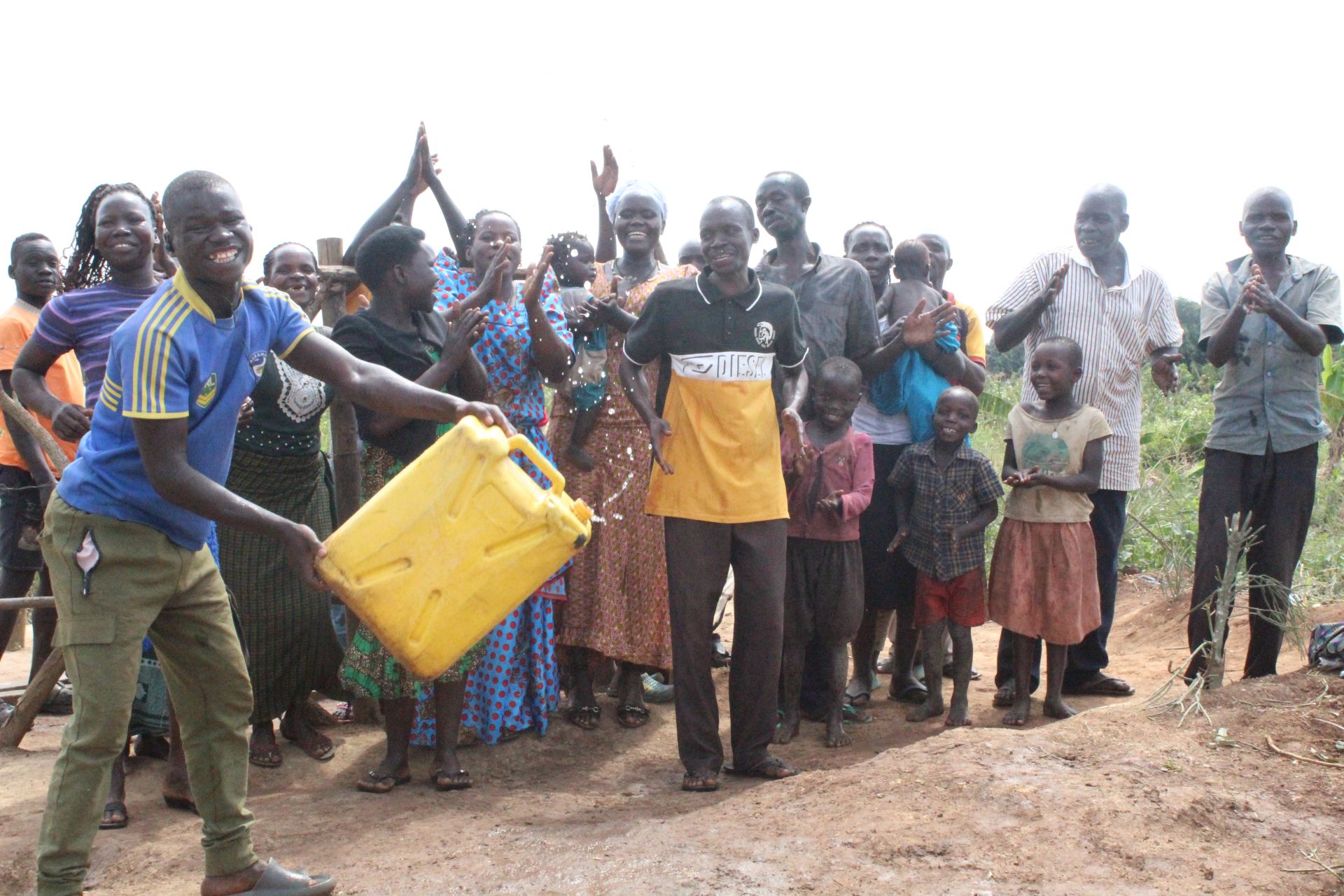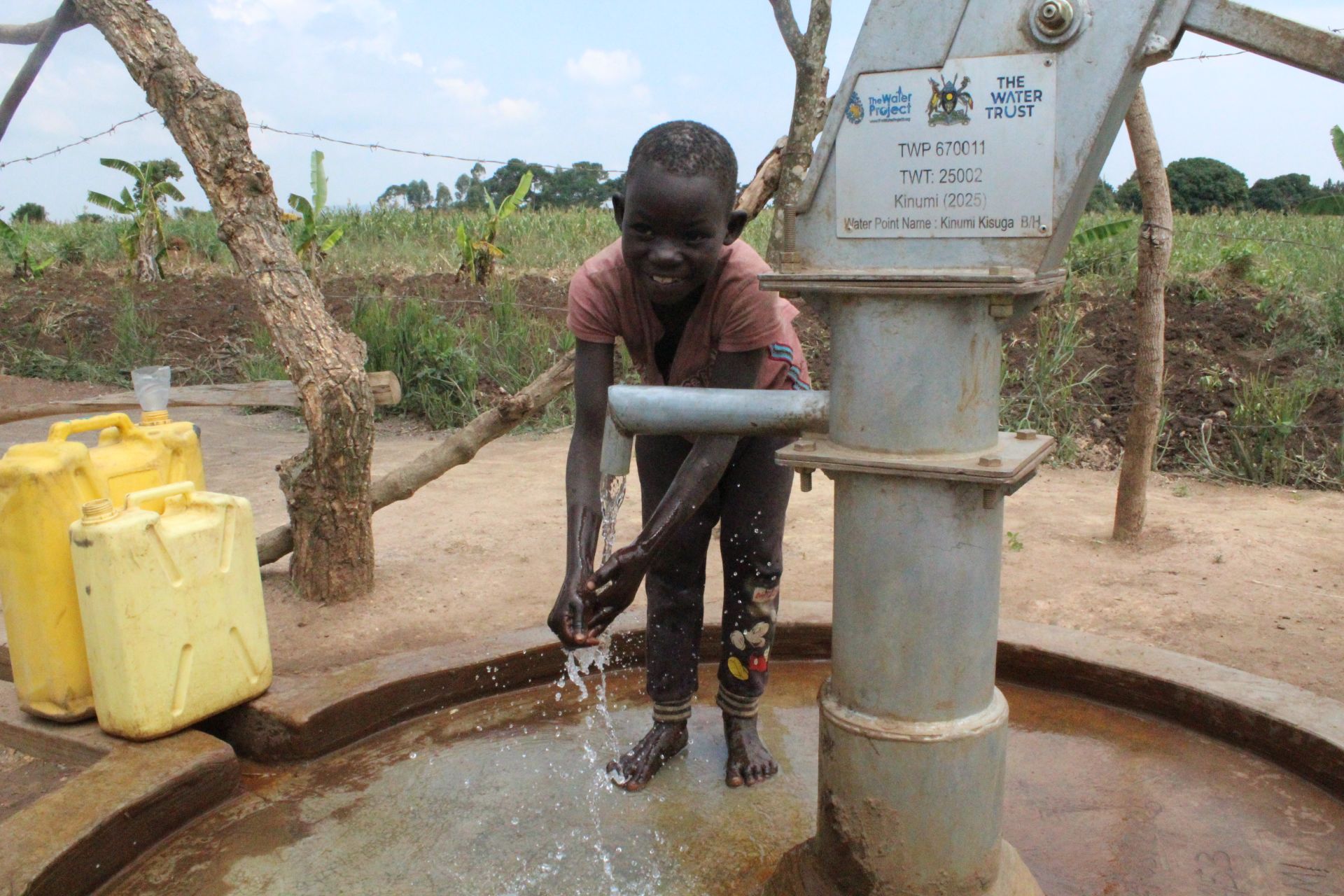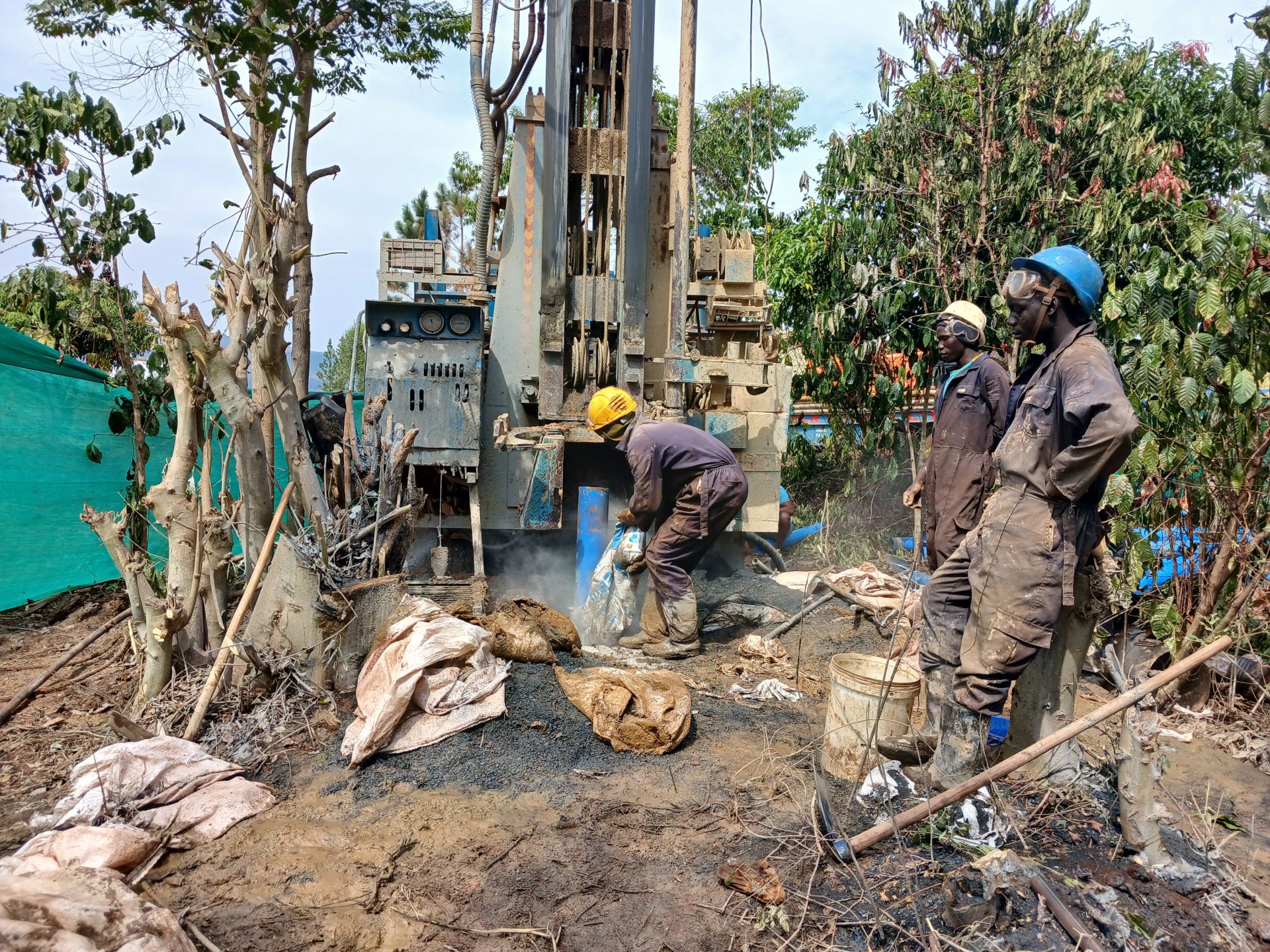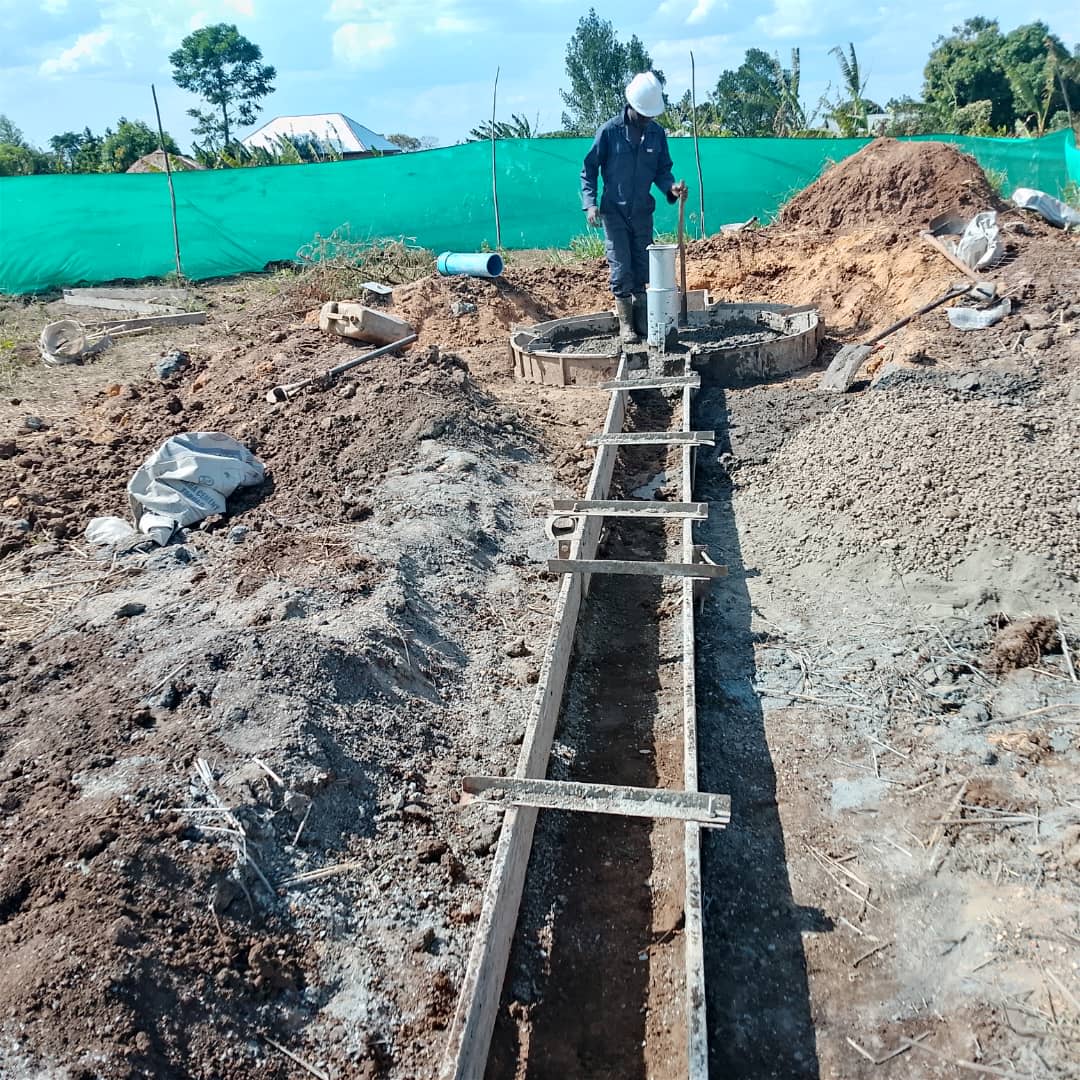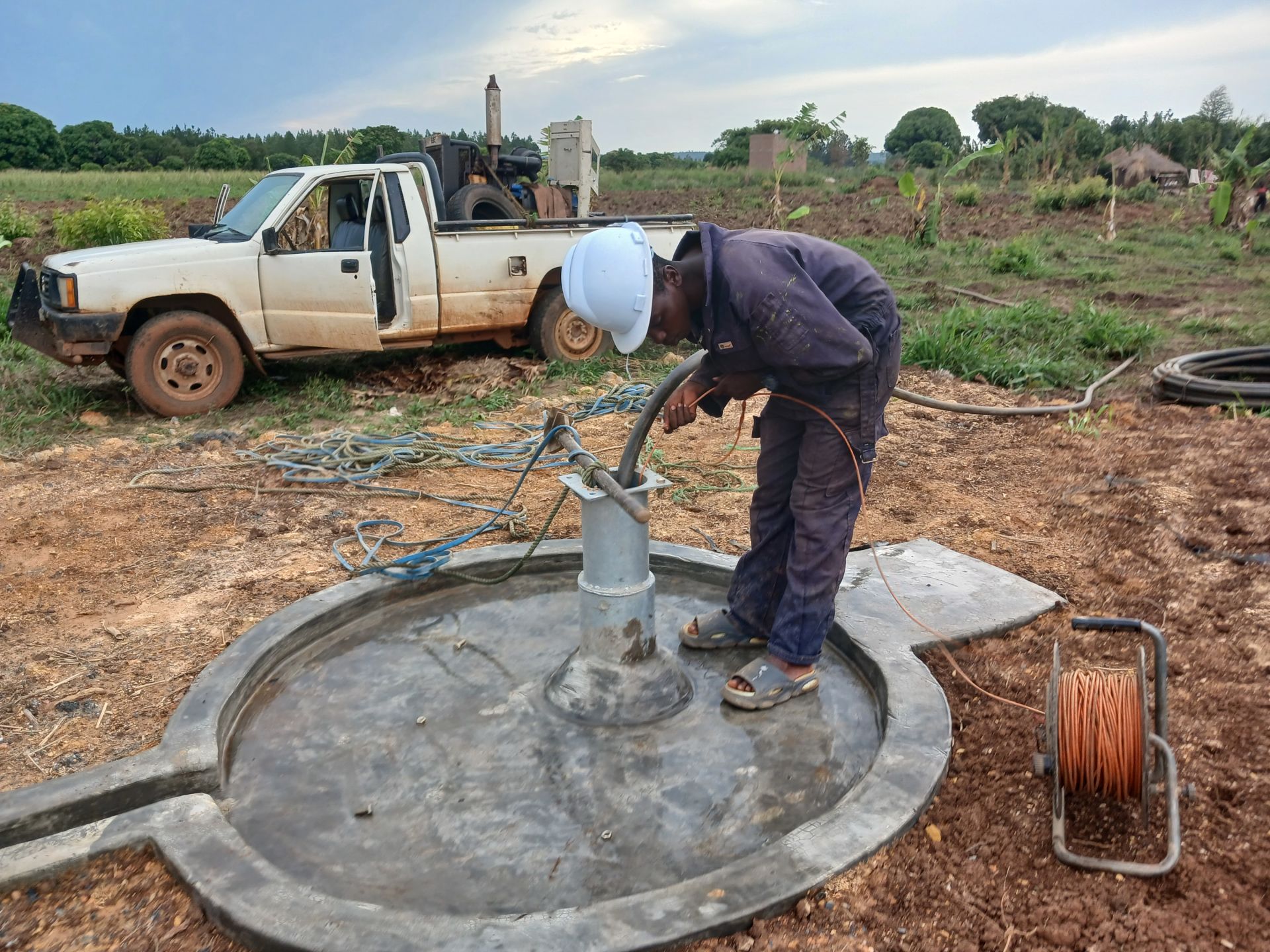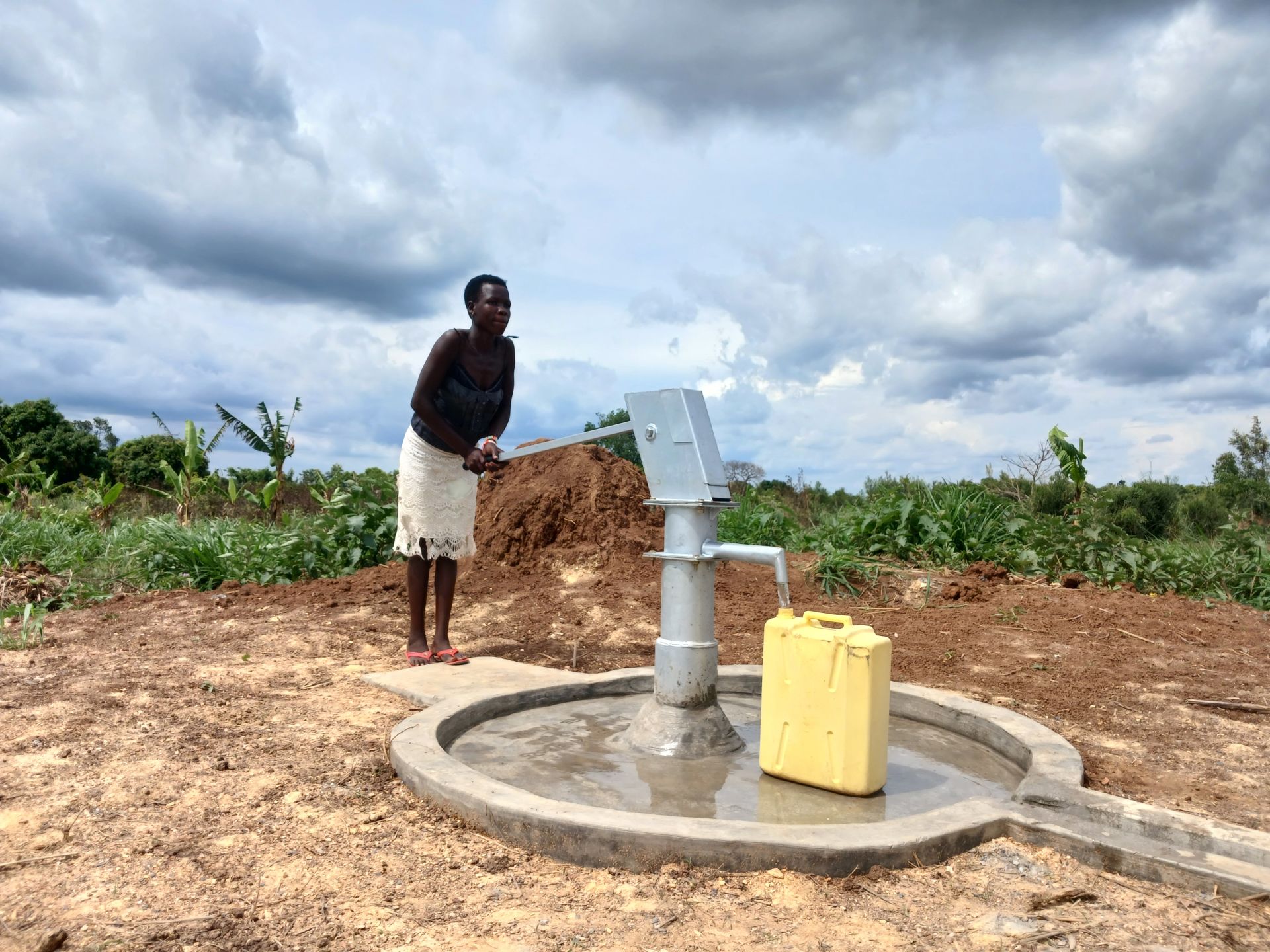The 275 people of Kinumi Community struggle to access sufficient water. Adults and children alike, traverse a great distance, up to an hour's walk away, to stand in line for an additional two hours, to collect the water necessary for everyday life. Their time is stolen and their safety is at risk.
13-year-old Brian feels the water crisis in his community acutely. He told us, "I feel distressed knowing that I have to walk a long distance. Fetching water takes a considerable amount of time, due to the distance involved. Additionally, the long queue further prolongs the process. This impacts my performance as I consistently arrive at school late, missing the beginning of lessons and consequently, some course content."

Brian.
Field Officer Bena Nakabiri shared about the current water source, a borehole well in a neighboring community. "Accessibility is hindered by [the] long-distance and crowding. Occasionally, the community is restricted from accessing the waterpoint without prior notification."
Not only is precious time taken from Brian's education, but he and his parents have to fear for his safety every time he leaves the house to collect water.
"The risk of navigating a busy road necessitates cautious walking to prevent accidents," shared Brian.
But getting to the waterpoint is not Brian's only difficulty.
He shared, "There's no fairness at the waterpoint because adults often bypass me when in a queue, resorting to physical force instead of adhering to the principle of first come, first serve."
Collecting water is difficult for Brian but he still has dreams for the future.

Brian at the distant well.
"I aim to arrive at school early and attend classes from start to finish. My goal is to pursue education, all the way to university, ensuring I secure a good job in the future to enable me take care of my parents and young siblings," stated Brian.
The installation of a borehole well will enable Brian to focus on his education and future goals instead of struggling to access water, sacrificing all his time for a difficult and dangerous journey.
Steps Toward a Solution
Our technical experts worked with the local community to identify the most effective solution to their water crisis. They decided to drill a borehole well, construct a platform for the well, and attach a hand pump.
Well
Abundant water often lies just beneath our feet. Aquifers—natural underground rivers—flow through layers of sediment and rock, offering a constant supply of safe water. A borehole well is drilled deep into the earth to access this naturally filtered and protected water. We penetrate meters, sometimes even hundreds of meters, of soil, silt, rock, and more to reach the water underground. Once found, we construct a platform for the well and attach a hand pump. The community gains a safe, enclosed water source capable of providing approximately five gallons of water per minute. Learn more here!
Community Education & Ownership
Hygiene and sanitation training are integral to our water projects. Training is tailored to each community's specific needs and includes key topics such as proper water handling, improved hygiene practices, disease transmission prevention, and care of the new water point. Safe water and improved hygiene habits foster a healthier future for everyone in the community. Encouraged and supported by the guidance of our team, a water user committee representative of the community's diverse members assumes responsibility for maintaining the water point, often gathering fees to ensure its upkeep.
A Community-Wide Approach
In Uganda, we use a Community-Led Total Sanitation (CLTS) approach, which involves several meetings where community members evaluate their own hygiene and sanitation practices to encourage lasting change. During these sessions, natural leaders emerge, motivating the community to recognize and change unhealthy behaviors that affect everyone.
Communities then commit to ending open defecation before we install the water project. Every household builds and uses a latrine to prevent disease and improve hygiene and sanitation alongside their new water source. To support this effort, a Community Development Officer (CDO) is assigned. The CDO encourages each household to set up handwashing stations, animal pens, garbage pits, and dish-drying racks. These additions are crucial in preventing the spread of common diseases.

 Borehole Well and Hand Pump
Borehole Well and Hand Pump
 Rehabilitation Project
Rehabilitation Project










